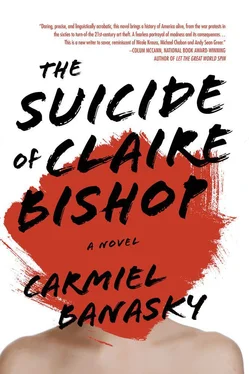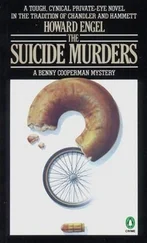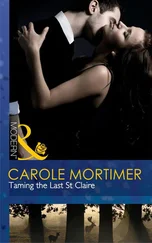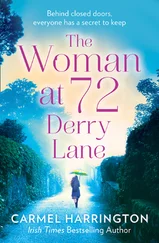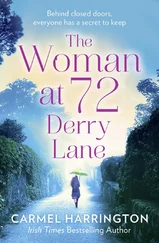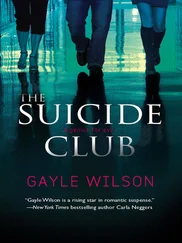But you missed what happened. Sometimes you leave and I don’t know where you go. Let’s jump back in time half an hour. You’ll have to imagine your own whirling time-travel sounds.
When I found Jill — when I find Jill — he’s a flamingo in the alleyway off Twenty-Third, his usual stance, one leg bent up on the wall, smoking his cigarette — but the opposite of bright pink. In the shadow of the dumpster, he blends into the air and the building. There’s a big industrial garbage bag at his feet, like when I first met him. I guess I expected to see a whole entourage of paid-off thieves. I’m disappointed it’s only him. With his leather-gloved hands, he throws me a pair of cheap black knit gloves meant for kids and a salmon-colored ski mask.
“It’s salmon-colored,” I say.
“Is it salmon? I’d call it pink.” He shrugs. “Hard to find black. It’s summer.” I gesture with my eyes at his mask, which just so happens to be black. “Had mine a few seasons.”
“What if they catch me because of the color?”
He says there’s only one real camera on floor nine, where we’re heading, black and white — which he tells me I should have known from heist movies. He digs through the garbage bag and pulls out two Styrofoam bowls. “Put these on your shoulders. Under your shirt.”
I look at him as in, um…? He rolls his eyes like I should’ve known this, too. “On the off chance we’re actually recorded — which won’t happen because I know which cameras are fakes and which aren’t, and I’ve studied their directional and oscillational abilities — they won’t be able to recognize your body type. Get it?” He pushes them into my hands. “Trust me.”
I slip on the bowls and the gloves, which stretch just enough to fit over my hands, and am about to put on the pink mask, but Jill shakes his head and tells me to wait until we’re in the front door, that we don’t want to look suspicious to passersby.
“Did you bring the cash?” he asks.
I dig the five hundred bucks out of my front pocket and hand it over.
He shoves the money in an empty Marlboro pack. “Thanks,” he mumbles. He seems embarrassed. Then he pinches off the cherry of his cigarette, sticks it in his front pocket, and stands up straight. I take a breath so deep it hurt. He might have gotten me a girl’s mask, but at least he looks ready.
He nods. I nod back. The bricks are yellowing their faces in the early evening sun. Sure, there are words in me, like “What am I doing?” and “This is the stupidest thing I’ve ever done I’ll rot in jail and get raped by big hairy men,” but cottony fear suffocates them out, my lunch ticking in my stomach like a bomb. I want to ask for water. We edge out of the alley, and Jill looks up and down the street, like in the movies. Then he unlocks the big metal door and we’re in, just like that, as if we’re doing nothing wrong.
It’s surprisingly loud in the quiet of the closed-up building. We slip on our masks and I hear the sound of a washing machine coming from somewhere else, or maybe the sound of a very gravelly female voice humming a Bulgarian song? There are the words out of control and dumbass lameboy tapping out of the walls.
Jill wraps himself around the stairwell like he’s a blanket of snow-melt, silent, dripping. He’s obviously had practice with this — there’s a secret strength in him. I bumble up after. There are our staccato footsteps arguing with the static of the building, an old snore and hum. There is the battle in the walls — rats and other long-toothed animals. A city centipede crawling faster than me up the stairs. It slips into a crack where I can’t follow.
“So you’ve done this before?” I ask, out of breath by the tenth step.
“Shh.”
“So you’ve done this before?” I whisper.
“No. Sort of. I’ve done this before, yes, all right. Never galleries. Only homes.”
“You’re an art thief?”
“I prefer to think of myself as part of the growing field of art valuation. Fell into it in my twenties.”
His voice is being broadcast by the metal handrail I’m holding. I’m afraid my voice would do the same so I keep my answer brief. “Hm.”
“Yeah, so, what’s your day job?”
“I predict ideas.”
“Quiet down.”
Quietly, I tell him I work for a predictive marketing firm.
“Fancy,” he grunts.
“I make spreadsheets,” I say. “Were you at the protest today?”
“What’s another face in the crowd?”
“What about Vietnam? I read how you helped those people.”
“How do you know about that?”
“Simple Google search,” I tell the old geezer. “You were in the Village Voice like five times, and once in the New York Time s.”
“Twice in the Times , I think. I thought twice.”
Between flights three through nine, Jill whispers to me the story of the painting. He says it lingered on the black market for a long time, then it was sold in auction since it was never reported as a theft. Bought by a woman is all he knows. Then there was a twenty-year gap when no one knew where it was, until one day the painting ended up here, apparently donated. They probably had it in a storeroom for years. Then he tells me about his own heists.
“I follow all my own cases online,” he says. “Good to keep tabs on that sort of thing. The Interpol website’s pretty comprehensive. The FBI’s okay. I mean, not all the jobs I’ve done get flagged. But it means something if a painting you grabbed gets posted under Recent Thefts, right up there with The Scream . Which, have you been reading about this? Stolen in broad daylight. Just like us, hey. It means something, to be monitored. Means I’ve touched something important.”
“So how did our painting get on the black market in the first place?”
Jill is suddenly out of breath and says he guesses it was stolen from Claire Bishop’s home. He tells me how sometimes there’s a buyer before you do a job, and you don’t want to mess with those guys. And if it makes the five o’clock news, they usually report the value and hence your percentage of the market sale and how can you turn your back on those dollar signs? But he says our job here won’t make the nightly news, what with the GOP in town. And the authorities try their best to not let these things go public and show how easy it is to rip off fifty-thousand-dollar works of art.
We reach the ninth floor, me drinking my own linty sweat from my upper lip. Jill unlocks the gallery door and says he’ll keep a lookout and I nod solemnly because that was the deal — he wasn’t going to do the actual deed.
Inside the gallery, everything is ringed in salmon-colored fuzz — the hardwood floor, the walls, the desk-sans-gallery-sitter. There’s a siren in the distance. A clock that I never noticed before ticks so loudly my bones vibrate. The sounds of trying to be quiet. My own muscles berating me. It’s fine, I tell my muscles, I’m about to finally have something real to offer Nicolette. I’m helping her, taking it away from the Hasidim.
And there it is, waiting for me. The falling woman’s hair glows; I can almost feel it on my own scalp. Her arm drooping over the frame, glistening like she is sweating too. The whole thing shines out, its essence reaching for me, bright as lightning as I lift it from the wall.
Time falls around me. The gallery walls crumble brick by brick. Through the bouquets of mortar and dust, I see the ancient meadows of the city. They hover above the sidewalks, the traffic cones, running down to the estuary and the sea. I see the layered shinbones of our ancestors, and feel the soil between my toes, the wild marshes of the Manhattan. Beyond that is the liquid future, shimmering and proud. The high clouds. The satellites. All shot through with light.
Читать дальше
